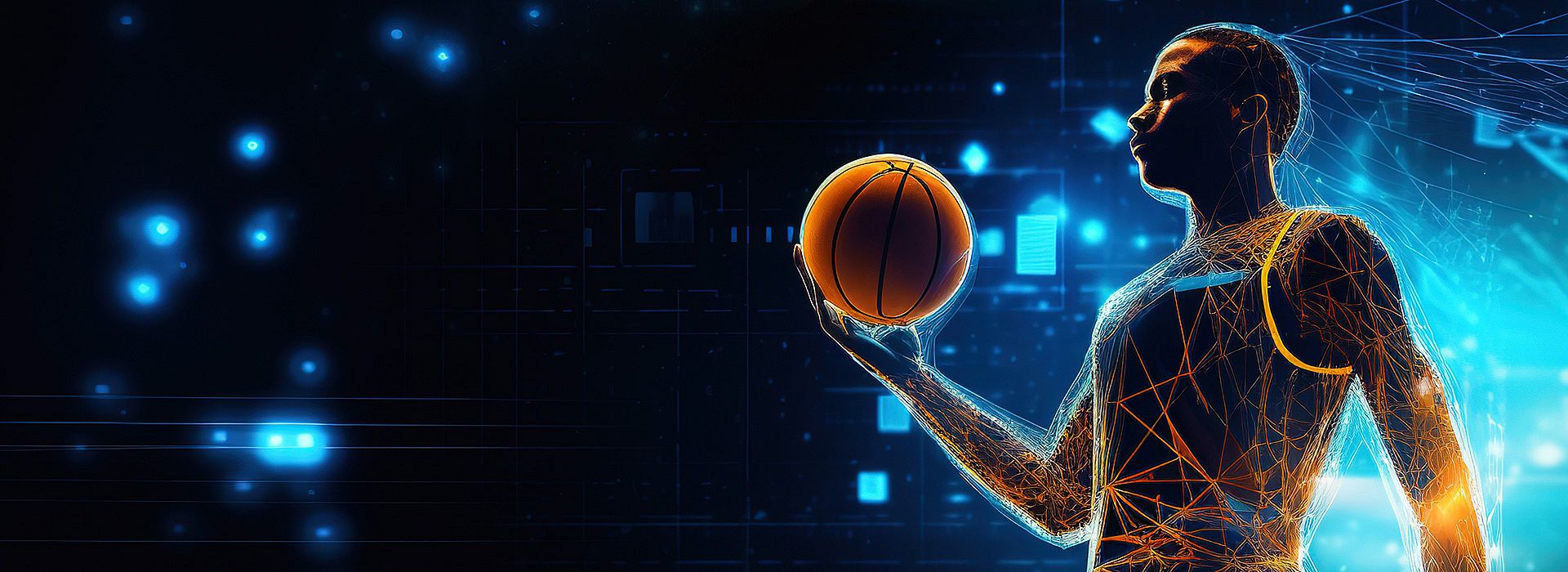Kinexon's GPS-based mobile player tracking system successfully supports monitoring of professional athletes. Based on the acquired data, training plans can be optimized towards individual athlete's needs, ultimately reducing injury risks. In the trAIner project, experience gained from professional sport is now being combined with the expertise of fortiss to adapt monitoring concepts to amateur basketball. Funded by the Bavarian Ministry of Economic Affairs, Regional Development and Energy (STMWi), Kinexon leads the consortium.
Efficient performance enhancement and injury prevention, even in amateur sports
trAIner aims to enable player analysis in basketball without GPS tracking, using only a single mobile camera placed at the sidelines. Data collected during training and matches serves as the basis for AI-supported processes for recognition, tracking, and context-based evaluation of athletic activities. This yields insights into player interaction, physical load, correlations, and scoring dynamics. Objective and comprehensive evaluations are facilitated by the analysis of the image data.
The AI extracts context-based throw statistics, performance indicators, trend visualizations, and player comparisons, streamlining training design to match individual athlete requirements.
Utilizing machine learning in sports training
In the project, fortiss will design, implement, and validate robust AI methods for the recognition, tracking, and context-based evaluation of athletic activities in team sports. In addition to the image data, the AI will be fed with domain knowledge such as playing field geometry, rules of the game, physics of the playing equipment, and biomechanical principles to develop an AI solution that is as universal and robust as possible for different application scenarios. Suitable options and interfaces are also to be investigated to integrate the knowledge components. “In this way, the trAIner project is helping to improve the significance of the statistics by incorporating a sporting context, increasing explainability, and thus making them accessible to a broader customer base”, as emphasized by Dr. Nicolai von Hoyningen-Huene, Team Leader Optical Tracking at Kinexon.
The fortiss researchers are applying their expertise, particularly in image-based detection and tracking, in practice. The AI will learn to reliably track objects even under occlusions or image distortions by means of deep learning methods, especially novel transformer architectures. These machine learning methods are already being used in a wide range of applications such as autonomous driving and medical image analysis.
Dr. Julian Wörmann, who is in charge of the research project until 2025 in the fortiss Machine Learning competence field, is convinced that the trAIner project will be of great benefit to both the project partners and the general public. He emphasizes, “trAIner offers ideal conditions for putting expertise in knowledge-based machine learning methods into practice for the benefit of a large community, such as in popular sports”. It is planned to implement and evaluate the results of the project directly, using basketball as an example. Basketball offers considerable potential for economic exploitation and optimal conditions for implementing the project.


